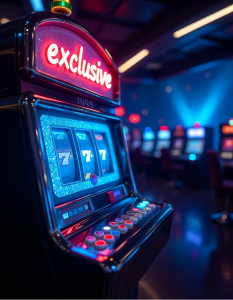Everybody’s goal when playing online slots is to take home a prize. Right at the top of the table, you have the kinds of progressive jackpots that promise life-changing sums of cash. These jackpots are a far cry from the more typical payouts, which rarely exceed say £100 or so.
With progressive jackpots, it’s not impossible to pocket six or even seven figures. But does this mean that progressive jackpots are ‘better’ that fixed jackpots? If you’re planning on playing online slots, should you focus primarily or exclusively on one or the other?
As is often the case, you’ll get very different questions depending on who you ask. Nevertheless, there are a few important things to take into account, if you’ve got your eye on progressive jackpots.
Fixed Jackpots
Fixed, flat or non-progressive jackpots have a jackpot set at a guaranteed amount. This means that no matter what happens, this is the maximum amount you can win. For example, lining up five ‘7’ symbols in a row could net you £500, but is never going to exceed this fixed jackpot. This is the way the vast majority of online slots work. It’s also the way traditional slots have worked since their introduction.
The amount of money you wager (your coin bet) could influence how much you stand to win, if you strike it lucky. Nevertheless, there is a maximum jackpot available that cannot be exceeded. So, every time a jackpot is hit, the jackpot is replaced at the same level.
Progressive Jackpots
A progressive jackpot is a machine that has a jackpot that increases as more people play it. There are no fixed limitations with progressive jackpots – it’s all about how much action the machine attracts. In some instances, progressive jackpots are accumulated from any number of slots on the same network. This way, hundreds or even thousands of players contribute to the same enormous jackpots.
Progressive jackpot slots can also have a separate, if slightly less impressive pay table. It’s still perfectly possible to win a decent amount of money, without actually taking home the jackpot. As a general rule of thumb, the bigger the jackpot, the lower the likelihood of taking it home. This is one of the reasons why progressive jackpots tend to be huge. It takes such a long time for somebody to win it but by the time they do, it’s an enormous and potentially life-changing jackpot.
The kind of enormous cash prize you sometimes see in the news regarding huge Las Vegas casino wins.
Realistically, however, playing for progressive jackpots is a little like buying a lottery ticket. Statistically, you’ve just about as much chance of winning as you have with the national lottery. That being, not much of a chance at all. But at the same time, you could argue that somebody has to win it, so why not you?
Progressive jackpots have made thousands of lucky players worldwide richer than ever expected – who’s to say you’re not next?
What Type of Jackpot is Best?
When explaining this age-old question, some take the view that lower jackpot games are better than those ones with huge jackpots. This may seem nonsensical, but is actually grounded in logic.
As with all casino games, it all comes down to personal preferences and priorities. Not to mention, the amount of money you intend to spend and can afford to lose. The key thing to bear in mind when considering progressive jackpots or otherwise is volatility – aka variance. This refers to the likelihood of winning a prize with any given spin. Low-variance slots pay out on a regular basis, but do so in the form of a relatively modest prizes. By contrast, high-variance slots pay out infrequently, but offer significantly bigger prizes.
This is something that needs to be taken into account, before selecting an online slot. This is because a high-variance slot will usually take persistence and patience, before paying off. During which, there’s a good chance you’ll spend quite a lot of money, without winning a prize.
And here’s the thing – progressive jackpots are typically right at the top of the variance scale. As they have the potential to pay the biggest prizes of all, they also pay out comparatively rarely. There are exceptions to the rule, but this is nonetheless the way it works in general. Hence, if you have a limited bankroll and you’re simply out for entertainment, you may want to stick with fixed jackpots and low-variance slots. By contrast, if you have money to burn and can afford to lose a fair amount, you could always try your luck with progressive jackpots.
The Best of Both Worlds
Of course, there’s nothing to say that you have to stick exclusively with progressive jackpots or fixed jackpots. Variety is the spice of life, so why not enjoy the best of both? Whether you prefer playing casino roulette for real money or trying the latest slots using virtual currency, there’s a whole world of entertainment out there to be found. Not to mention, thousands of different slots with varying levels of volatility to try out.
As mentioned previously, it’s useful to look at progressive jackpots a little like lotteries. The prizes can be huge and it doesn’t cost much to take part. But at the same time, you don’t genuinely expect to be the one to pocket the top prize. Likewise, you don’t spend more than you can afford to on lottery tickets. In the same vein, therefore, you should also keep an eye on your spending where progressive jackpots are concerned.
You might pocket a prize, but chances are, you probably won’t!
Progressive slots can certainly offer bigger jackpots but fixed jackpots pay out more often. When progressive slots reach a hefty six or seven-figure prize, they’re almost impossible to resist. But non-progressive slots might give you a more regular opportunity to win, if on a slightly more modest scale.
You might also find the following articles interesting:
- 10 Ways to Make Money While Gambling
- 5 Reasons Why You Should Try Live Casino Games Online
- 5 Tips to Become a Better Poker Player














